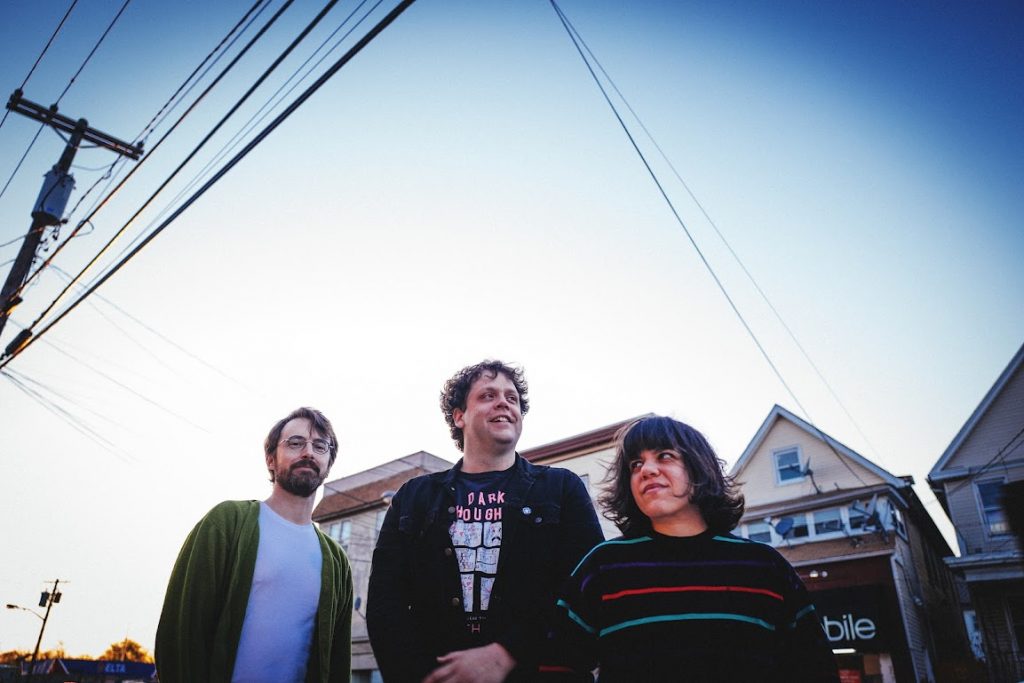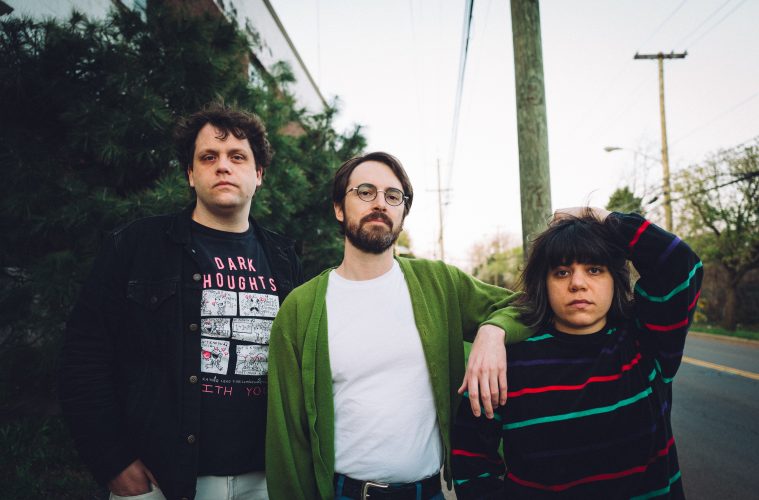By Elizabeth Kim
Since 2006, garage-punk band Screaming Females has been putting out records that have gotten the attention of the alternative music scene time and time again, and their newest record, Desire Pathways, is no different, yet still just as striking.
The members of Screaming Females – Marissa Paternoster, Mike Abbate, and Jarrett Dougherty – first met while they were students at Rutgers University in New Brunswick, New Jersey, a city known for its underground music scene. Forged by a close-knit community of musicians, house venues, and fans, the scene’s DIY music culture has allowed bands like Screaming Females to work their way up from local to national stages.
The band’s newest album, Desire Pathways, is a powerful reassertion of the their ability to command a sound that is both aggressive and complex, but in different ways from their previous albums and releases. From the humongous sound of the opening track “Brass Bell,” to the dark groove of “It’s All Said And Done,” to rawness of “So Low,” Screaming Females are still exciting old and new fans alike.
We were lucky enough to sit down with Jarrett Doughtery, the band’s drummer, to talk about the new album, their recent tour in Alaska, and their evolution as a band.
WUOG: Could you give a brief introduction to the album and how it came about? And what the process of writing and experimenting was like over the pandemic?
Jarrett Dougherty: So, Desire Pathway is our eighth record as a band. We recorded it in Pachyderm Studios in Minnesota which is this purposefully-built studio built onto this mid-century modern mansion that’s in the middle of nowhere. It’s had a bunch of famous records recorded there – most notably, In Utero by Nirvana was recorded there. We worked with producer and engineer Matt Bayless who worked on our previous two full-length records.
We were in the midst of a tour when COVID hit and we got sent home. During that time, we wrote some songs remotely, which we had never done before. Some of those [new] songs ended up making their way onto the record, but the songs that we had already, we continued to demo and kind of rework. Some of those took on new forms by the time we got to record, but some of them actually went back to their original forms. We had worked on them for years, and then we decided that the version we wrote in 2019 was actually the right version.
W: Why did you choose Pachyderm Studios compared to something that wasn’t so remote?
JD: There’s a few reasons. One, we’ve worked with Matt on the previous two records. We wanted to make sure that we weren’t doing the same record over and over again. Of course, we have different things happening in our lives and we’re listening different things during the course of writing, so I don’t think any of our records are ever going to truly sound the same, but one thing that we can do is make sure that we’re not setting ourselves up in the exact same scenario.
It also helped that since we went to record in 2021, [the pandemic was] still pretty bad, so being isolated in a small group where it was just the three of us, Matt, and the studio manager, we felt pretty confident that we could get through the session without anyone getting sick.
W: You guys have a pretty distinct sound, but what kind of inspirations went into this album specifically?
JD: I don’t think we ever go in saying we want this to sound exactly like something else – that’s always been part of the formula of our band is that there is no formula. That’s just not how we’ve ever operated. It’s really more subtle influences. It’s not like we’re set out to sound like something.
W: How have you guys changed as a band that’s pretty established in the scene to fit the changing industry today?
JD: That’s a good question, and it’s really hard to answer because it’s ever evolving.
There was a lot of pressure when we were first starting that every band should get a MySpace, and we were like, ‘What do we need that for?’ Eventually, we did get it because it helped with getting in touch with people about the initial tours we were doing.
We’ve never been the band that felt like we needed to be on the next biggest thing – it’s more just that these are tools and if people are gravitating towards them, then we’re going to use them to get our music out to people.
It does, I think, take a lot of time away from the creativity. It can derail you and kind of make you feel bad sometimes, like, ‘Is anyone even listening to our music?’ So I think that social media is detrimental in that it pulls away from the creativity in a way that reinforces some very base notions of what artists should do to promote themselves.

W: What has it been like moving from a smaller, house show scene to a more national stage, especially with your recent tour in Alaska?
JD: The tour in Alaska really brought us fully back around in that it was this community effort where we were able to meet up with and play shows with and be taken into their homes. It really felt like exactly where we came from.
We didn’t want to just go play one big show in Anchorage, we really wanted to go see what Alaska was about. There’s a lot of cool towns in Alaska and they’re very small, but they have a lot of places to play, and these places don’t see touring bands, especially outside of bluegrass or other rootsy, Americana genres.
I think all of that is incredibly reminiscent of what we were into when we were running a lot of house shows in New Brunswick and it’s just what we still love about music. We try to connect with people and keep up long lasting, meaningful relationships, and a lot of those go back to the house shows we were booking.
W: What got you into drumming in the first place?
JD: Both of my parents are really accomplished musicians, so music was always around me and I was always encouraged and expected to play music. But every instrument I tried when I was young, it felt that one of them had already done it before and was probably pretty good at it – I just didn’t like it. I gravitated towards drums because neither of them could play drums.
Drum set came secondary to me. Initially I studied a lot of orchestral percussion – I spent years of my life studying how to play the tambourine.
Mike and Marissa were the total opposite end of the spectrum, which is that they just picked it up themselves and were pretty much just self-taught. They had a math teacher who would invite kids to hang out after school and he would have a bunch of instruments and teach them how to play.
I did drumline, jazz band, and all that stuff, but their high school music experience was hanging out after school and playing guitars and bass and trying to learn Pavement songs.
W: Back to the album, where does the name ‘Desire Pathways’ come from?
JD: It comes from a real thing, I think most commonly known as a ‘desire path.’ There are these pre-designed paths, like a sidewalk, and then there’ll be ones where it’s just a path that people have decided is the best way to get between two spots. Marissa thought it was an interesting concept that there could be this kind of unspoken agreement with people where you just decide the right way to do things.
W: Do any of the songs draw towards that theme of the desire pathway, or is it just a loose concept?
JD: I’d say [that question] is for Marissa, but she probably wouldn’t answer you anyways. She likes to keep the lyrics somewhat abstract and paint sort of word pictures that can have different meanings or images that people are able to interpret individually. I know a lot of the songs have to do with breaking up in a relationship.
I think that concept can be spread across a lot of things that have to do with life as sort of a metaphor for getting around the pre-assumed paths that you’re supposed to follow.
Screaming Females are embarking on a headlining tour across the U.S., Canada, E.U., and U.K. on March 29, 2023. They will be playing over 40 shows, joined by Generacion Suicida, Heavy Comforter, Smirk, and The Mimes.

